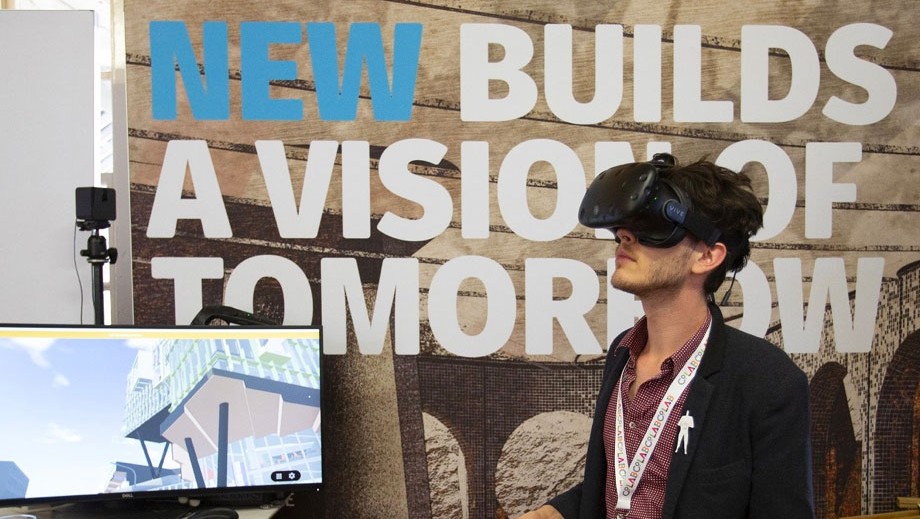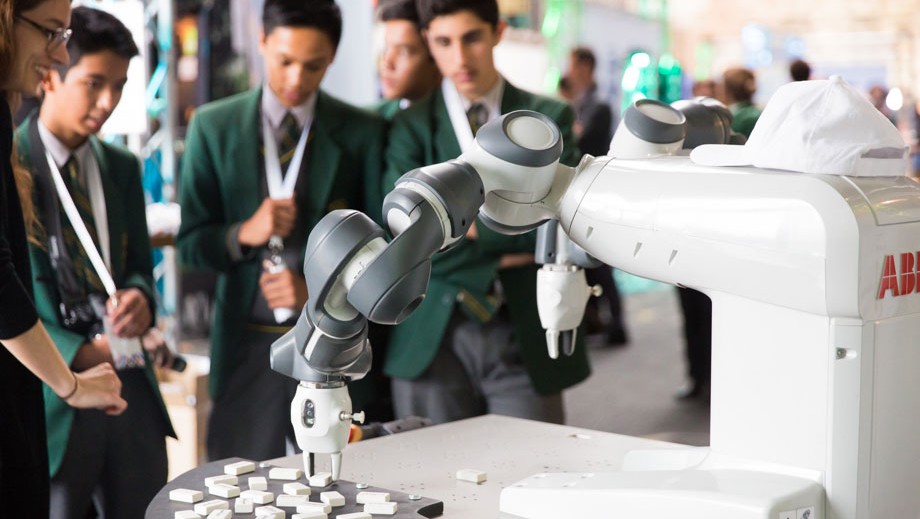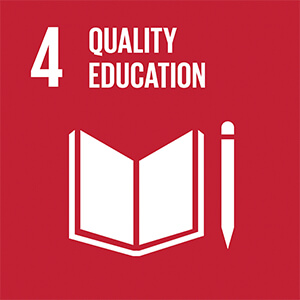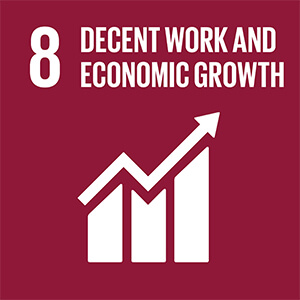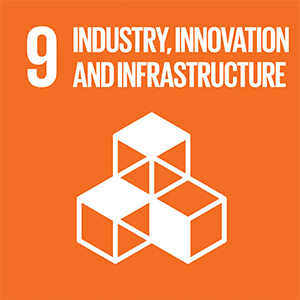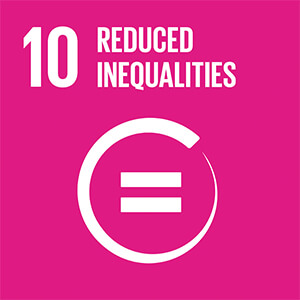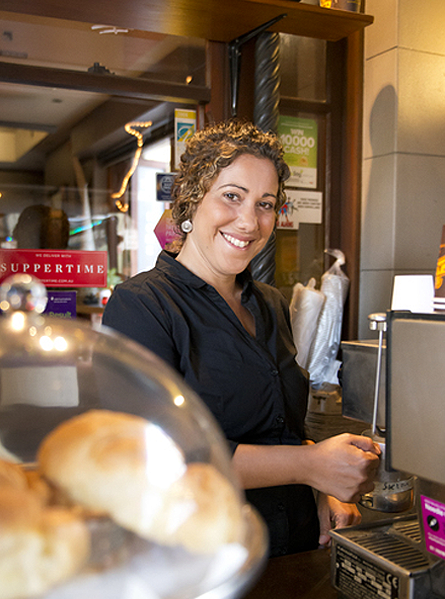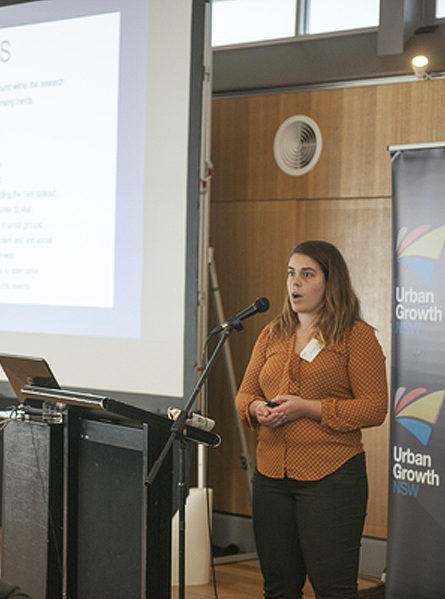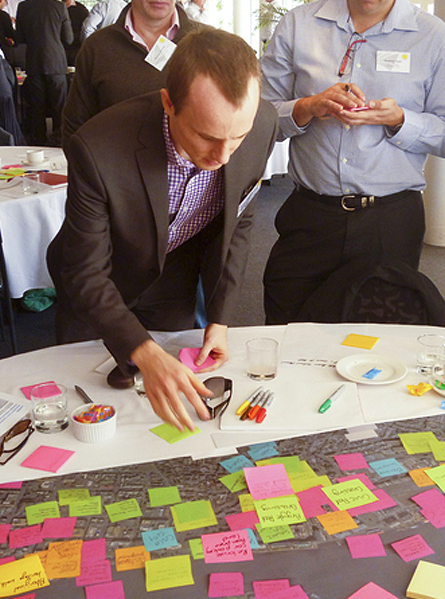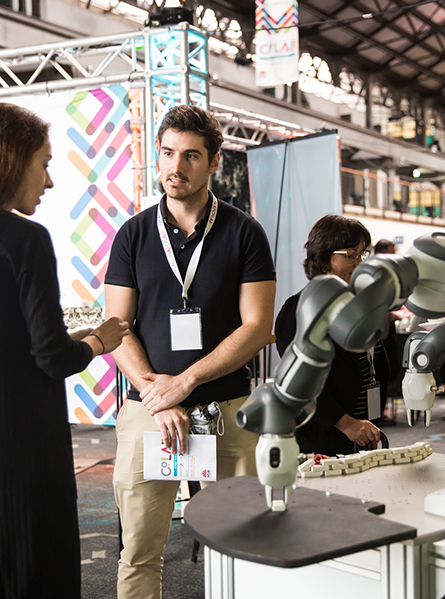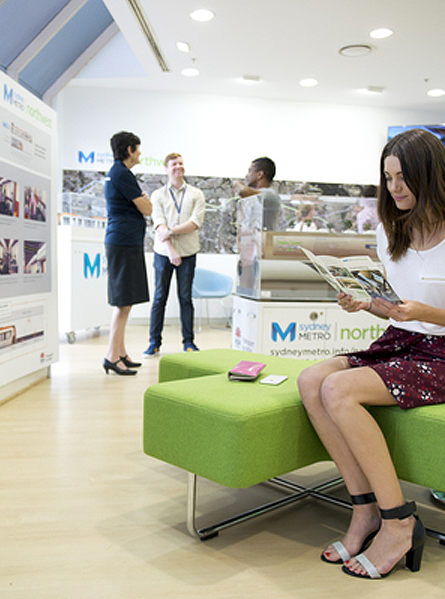Productive
Places
Objective
Goal
Relevant SDGs
Productive Places Pillar Overview
Landcom’s Productive Places pillar is focused on a leadership goal to ‘contribute to the global innovation economy by enabling over 30,000 new jobs by 2036’. This is our economic pillar committed to delivering places that will be productive and engaging for those that live there.
This leadership goal was developed to reflect Landcom’s commitment to economic development, strengthening technology infrastructure and advancing equitable opportunities for skills development and education.
Landcom addresses the enablement of jobs and innovation through the following focus areas:
-
Training & employment
-
Innovation
Both of these focus areas includes a suite of targets to measure our success.
Management Approach
Our leadership goal to enable 30,000 jobs across our communities by 2036 is in direct response to the broader NSW government objectives. As at 2036, the Greater Sydney Commission (GSC) forecasts the Sydney region alone will need 817,000 new jobs. We support these targets by developing productive places and mixed-use communities where people can work, live and play.
In FY18 our Economic Development Working Group37 released an approach for overcoming the challenge of consistently and effectively calculating our efforts to enable enduring local jobs. We use proxy employment ratios, developed through detailed research and benchmarking, attributed to various land uses based on gross floor area. Examples of land uses included are commercial, retail, industrial, community, cultural, tourism, health services, education, storage, hotel, serviced apartment, student housing and residential. As jobs creation is a long-term goal for Landcom, we report our performance based on the FY actuals, and forecast jobs created for the life of a project.38 This gives us a clear indication of whether we are on track to meet our 2036 target.
In FY19 Landcom’s methodology was also adopted across the NSW Government’s Common Planning Assumptions Group (CPAG), influencing a consistent government wide approach.
We also contribute to advancing education and skills development across our communities. We work with industry and registered training organisations to develop programs that address specific skills requirements of locals, and provide training opportunities and employment pathways for those experiencing low or long-term unemployment. We also collaborate with schools and other educational institutions to deliver learning and youth engagement programs that are aligned with the NSW primary and secondary curriculum topics.
For Landcom’s FY19 performance for enabling jobs and providing local training and employment outcomes see Training & Employment Performance Results below.
37 The Economic Development Working Group was established during our operations as Landcom trading as ‘UrbanGrowth NSW’.
38 In FY19 we have revised our management approach to include only new projects, or precincts within projects where Landcom has the ability to influence the outcome since the adoption of our Sustainable Places Strategy. Our FY18 results are restated and noted accordingly.
Landcom invests in research that advances the property and development industry, and takes action to future proof our communities.
We invest in collaborative research such as Cooperative Research Centre programs, or via our own Roundtable. Landcom’s Roundtable is a collaboration with other government organisations39 and eight leading NSW universities. Comprised of senior representatives from each institution, the Roundtable meets several times a year to review research proposals that advance urban development innovation.
Our Roundtable was established for an initial period of three years, which matured in FY19. As part of our commitment to continuous improvement we commissioned the Australia and New Zealand School of Government to undertake an independent evaluation of the Roundtable. The outcomes have guided Landcom to adopt research priorities for future investigation aligned to our Strategic Directions:
Governance: Landcom’s Roundtable Research Program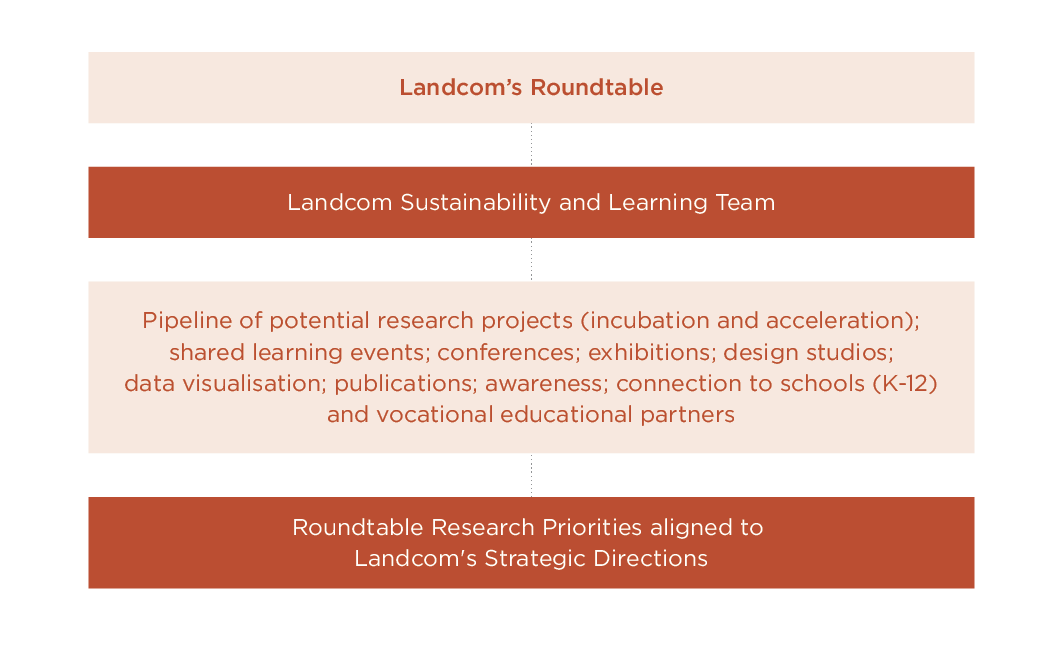
|
|
||
|
Housing Increase the affordability, supply and diversity of housing |
Landcom is interested in research that:
|
||
|
Partnerships Partner with others to unlock development opportunities and improve delivery |
Landcom is interested in research that:
|
||
|
Leadership Demonstrate excellence in sustainable development and planning practices |
Landcom is interested in research that:
|
Landcom addresses emerging technologies in our Innovation focus area. Currently we are seeking to roll out smart technology to our new communities in the form of electric vehicle (EV) rapid charge stations and increasing the provision of free Wi-Fi in public places. We see these initiatives as future-proofing communities, reducing inequalities in access to information and ensuring early adoption of future transport technologies.
Ultimately, the provision of EV chargers throughout Landcom communities improves resilience, reduces greenhouse gas emissions, and reduces transport related cost of living expenses for residents. These targets also contribute to Landcom’s low-carbon transport approach, including accessibility to public transport, walkable and cycling-friendly neighbourhoods (see Health, Equity & Inclusion).
For our FY19 activities related to Innovation see Innovation Performance Results below.
39 During FY19 government participants included Government Architect NSW, Greater Sydney Commission, Hunter & Central Coast Development Corporation and UrbanGrowth NSW Development Corporation.
Our Sustainable Places Strategy identifies a number of initiatives as future opportunities to enhance our Productive Places commitments. These include:
- adopting a Reconciliation Action Plan
- considering our business approach to staff volunteering
- advancing our approach to smart cities and innovation
- seeking collaborative opportunities to deliver smart working hubs and other community enablers.
In FY20 we will update our management approach to include the adoption and delivery of a Reconciliation Action Plan. This responds to our new material matter of respecting indigenous culture and heritage. We will also continue to investigate opportunities for more staff volunteering, smart cities and the delivery of collaborative work hubs.
Performance Results
See below our performance results for each of the reporting areas within our Productive Places Pillar.
Landcom’s Sustainable Places Strategy addresses Training & Employment. This focus area forms part of our Productive Cities pillar and is a representation of our commitment to advancing needs-based education, skills and training to our communities.
In FY19 all targets for reporting against our Training & Employment were in scope. Our results are presented below.
FY19 Productive Places Targets
Performance
To contribute to a global innovation economy by enabling 30,000 enduring jobs for the future by 2036.
Performance
Projects to engage and foster education, learning or employment outcomes via actives or initiatives, based on identified needs of the local and regional community.
FY18:
Engaged over
students across our Skills Exchange, research and excursion programs
FY19:
Engaged over
students across our Skills Exchange, research and excursion programs
Landcom’s Sustainable Places Strategy addresses Innovation. This focus area forms part of our Productive Places pillar and is a representation of our commitment to advancing innovation through our business, and to our communities.
In FY19 our targets for the delivery of electric vehicle charging and public Wi-Fi remain out of scope, due to no new projects being delivered or sold during the reporting period.
FY19 Productive Places Targets
Performance
Measure and report annual investment in research and development.
FY18:
cash
FY19:
cash
in-kind
All project teams engaged in Landcom’s Roundtable ‘Communities of Practice’ program.
FY18:
project teams engaged
FY19:
project teams engaged
Greenfield/Regional: all new communities provide electric vehicle chargers to service a minimum 10% total dwellings (as either publicly accessible or private use).
Urban Renewal/High Density: provide a minimum 10% parking yield, per parking lot, as EV Charge Station ‘turn-key’ ready at development completion.
FY18:
No projects in scope
FY19:
No projects in scope
Key open spaces to provide free Wi-Fi access.
FY18:
No projects in scope
FY19:
No projects in scope
